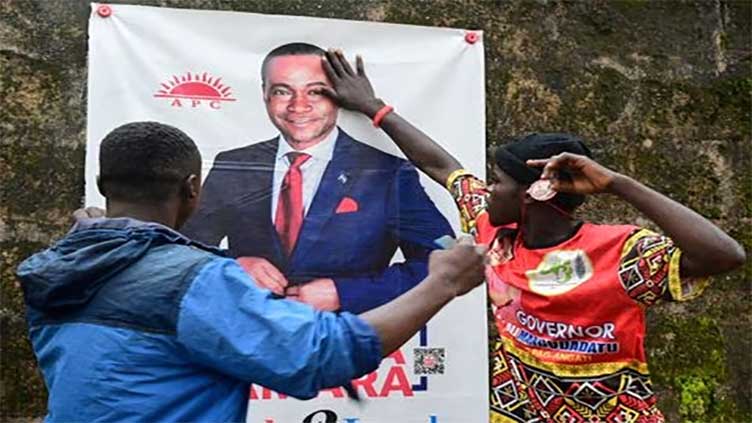Sierra Leone main opposition party rejects partial presidential poll results

World
Sierra Leone main opposition party rejects partial presidential poll results
FREETOWN (Reuters) - Sierra Leone's main opposition party has rejected the partial results of a tense presidential election that showed President Julius Maada Bio leading the poll, alleging irregularities in the tallying process.
Tensions have risen around general elections on Saturday in which Bio, 59, is running against 12 opponents after a first term marred by growing frustration over economic hardship.
The All People's Congress (APC) party's main candidate Samura Kamara, 72, is the incumbent's main rival.
A provisional results sheet on Monday showed Kamara trailing behind Bio with just under 800,000 votes, compared to over 1 million for the president.
"We totally reject the chief Electoral Commissioner's announcement of such cooked up figures," the APC said in a statement, citing a lack of transparency and inclusivity.
The party said its agents were barred from the counting process, that a breakdown of results was not provided and that it was not given an exact time for the announcement amid other irregularities.
It urged the electoral commission to refrain from disclosing further tallies until they were "mutually and satisfactorily verified".
International observers have also voiced concern about a lack of transparency in the tallying of ballots.
The commission has not responded to the allegations. It said on Monday that final verified results would be announced within the next 48 hours.
Post-election violence broke out during a press conference at APC headquarters on Sunday, and there are fears more unrest could occur as vote counts are released. Clashes took place in the run-up to the poll and on voting day.
Bio addressed the nation after the publication of provisional results on Monday evening and called on citizens to remain peaceful.
Sierra Leone suffered a devastating Ebola epidemic that peaked in 2014 and a 1991-2002 civil war in which more than 50,000 were killed and hundreds maimed.
Economic downturn has stalled hopes of recovery in a country where widespread underemployment persists and over half of the population lives in poverty, according to the World Bank.

